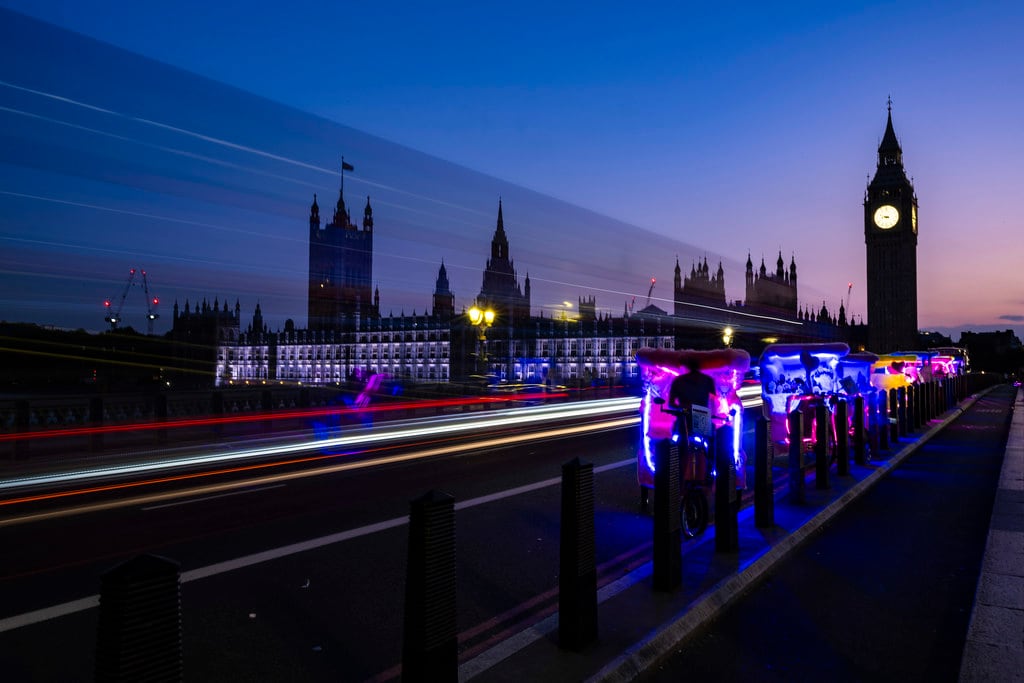The Chancellor, who gave her statement to the House of Commons on Wednesday 26 November, has been told she has “not read the room” and that this is a “missed opportunity” to reduce the business rates burden on pubs.
British Beer & Pub Association CEO Emma McClarkin said: “Despite the Government’s clear intention to support pubs with permanent business rates reform – which we welcomed – these lower multipliers are vastly insufficient.
“The Budget has missed a clear opportunity to meaningfully reduce the disproportionate burden on pubs. There’s little to raise a glass to because bills for most will go up overall and, therefore, it will become harder for pubs to stay open which will risk jobs, the hearts of communities and drive growth.”
She added not only will there be higher bills, many pubs will pay rates for the first time at next year’s revaluation process, despite measures to cap these bills.
McClarkin added it would be an understatement to say there is more work to be done to ensure brewers and pubs can thrive.
“It would be remiss not to mention how damaging beer duty rises and higher wage bills will be for the cost of doing business and the subsequent higher prices for consumers, which is why Government must better support Britain’s brewers and pubs who can deliver growth,” she added. “Following this Budget, it is now more important than ever that people support their local.”
She concluded that the Government had a chance to apply a maximal discount of 20p in the business rates multiplier for pubs but this Budget amounts to a 5p discount.
Penalised for too long
UKHospitality chair Kate Nicholls also stated business rates reform has not been delivered in full with just a quarter of the maximum discount – as pledged in last year’s Budget – being offered.
She said: “Bricks and mortar hospitality businesses are being taxed out and they have been penalised by the broken business rates system for far too long.
“The Chancellor recognised the importance of hospitality and provided a permanently lower multiplier for hospitality businesses – reforms secured by UKHospitality.”
Nicholls said it was particularly frustrating given changes to business rates valuations will mean many hospitality businesses’ tax bills will still significantly rise, alongside increases to the minimum wage adding extra cost.
She also demanded business tax rates for hospitality must continue to fall for the rest of this parliament.
“The Government has heeded our calls for significant transitional relief for businesses, which will mitigate the worst impacts of the revaluation,” Nicholls added.
“Hospitality remains under significant cost pressures, with the highest tax burden in the economy. We will continue to campaign for additional support for the sector, including further business rates discounts.”
Operating on the edge
Night-Time Industries Association CEO Michael Kill described the Budget as a “hammer blow” to an already fragile night-time economy.
“Its impact will be felt across every high street and town centre in the UK,” Kill added. “With inflation now higher than it has been for some months and the cost of living becoming increasingly unsustainable, disposable income has all but disappeared, swallowed up by rising everyday costs.
“We are deeply concerned by the scale of direct and indirect tax increases set to hit our sector over the coming months. Many venues are already operating on the edge and we will inevitably see businesses handing back their keys by January, when VAT, quarterly rent payments, and other financial obligations collide. The pressure on both operators and consumers is now completely unsustainable.”
He described the 4.1% increase in the minimum wage to £12.71 as sounding positive on the surface but when coupled with an 8.5% rise for 18 to 20-year-olds it presents a serious challenge for the sector.
He continued: “These are Government decisions and they must take responsibility for the consequences. People will respond at the ballot box and in their communities. As we head towards May next year, one thing is clear: the honeymoon period is over and the night-time economy will not forget.
“The Chancellor has clearly not read the room. In fact, for many in our sector, it feels like the Government left the room a long time ago.”
Hard truth
British Institute of Innkeeping CEO Steve Alton has been left “devastated” by the Budget.
He explained: “Words cannot express how devastating this Budget is for so many of our members. We have been working closely with Government, sharing the realities for our members, running vital pub businesses in every community with them.
“Award-winning operators, working tirelessly in their local businesses to deliver a brilliant and essential service to their communities, will now face thousands of pounds in increased taxes – and the hard truth is that many of them just will not be able to sustain their businesses come April next year."
He added many venues will be forced to reduce hours, cut investment and cut jobs with young people set to be hit the hardest because pubs are one of the UK’s biggest employers of 18 to 25-year-olds.
“Government simply must reconsider their position on this or face the huge and dire consequences we have warned of during the past year with 35% of independent pubs under threat of closure,” Alton added. “Without meaningful support, the consequences will be felt in lost jobs, failed businesses, and weakened communities.”
Bitterly disappointed
The Campaign for Real Ale (CAMRA) chairman Ash Corbett-Collins described the Budget as a dark day for drinkers, pubs and breweries.
He added rather than implement a package to save pubs, the Chancellor has chosen not to help with VAT, energy bills or employer national insurance contributions (NICs).
On business rates, he said: “The decision to introduce permanently lower business rates for hospitality businesses in England from next May is a positive step and is long overdue.
“The Treasury has stated all retail, leisure and hospitality businesses will pay lower rates bills than they do at the moment, even with the 40% discount on business rates bills ending next year.
“This is encouraging but pubs will want to know just how much they will be paying to be able to plan and to know how much this decision will help them at a time when other costs continue to rise.”
The lack of movement on alcohol duty has left Corbett-Collins “bitterly disappointed”.
He explained: “Instead of delivering a substantial cut in tax breweries pay on their beer going to be sold in pubs, the Chancellor has made the damaging choice to hike alcohol duties, including on draught beer and cider.
“As well as a cut in VAT and help with energy costs and employer NICs, Rachel Reeves should have taken action to recognise the benefits of drinking in community locals by slashing tax specifically on pints in pubs by up to 50% to help them compete with cheap supermarket alcohol.
“This extra hike in taxes on drinking in the pub can only risk more pubs and breweries being lost to the communities they serve.”
On changes to the licensing system, he said pubgoers and licensees will be shocked that the only mention of supporting pubs in the Chancellor’s statement was re-announcing some tinkering around the edges of the licensing system in England and Wales.
“This just doesn’t cut it, Corbett-Collins said. “Hundreds of pubs have closed this year and thousands more are at risk because of this Budget where no support has been given on VAT, energy bills, alcohol duty or employer NICs.”
Absolutely galling
North of the border, the Scottish Licensed Trade Association (SLTA) also took aim at the lack of support offered in business rates reform.
SLTA managing director Colin Wilkinson said the Chancellor announced there would be rates reform for the retail, hospitality and leisure sector in England from April 2026, but conveniently did not give any indication of what those reforms would be.
He continued: “A specific poundage rate of 35p in the pound has been suggested by many organisations but we understand that any specific reduction may now only be 5p in the pound – not exactly the reform we were all hoping for.
“It is absolutely galling for the Chancellor to stand there and take credit for freezing employers’ national insurance contributions this year, after what she hit employers with in the 2024 Autumn Budget.”
He added the national minimum wage has increased again and is now 65% more than it was five years ago with no mention of any measures to help mitigate the increased costs.
“Soaring costs of doing business and pressure on customer spending have pushed hospitality leaders’ optimism down to a five-year low, according to the latest UK Business Confidence Survey from CGA,” Wilkinson stated. “Staffing costs, high inflation, and low consumer confidence continue to weaken the hospitality industry across the UK and we know of several examples of businesses putting expansion plans on hold, cutting staff hours and raising prices to stay afloat.”
He did, however, welcome the £820m of funding for Scotland through Barnett consequentials and urged the Scottish government to allocate some of this to support the licensed hospitality sector in Scotland.


